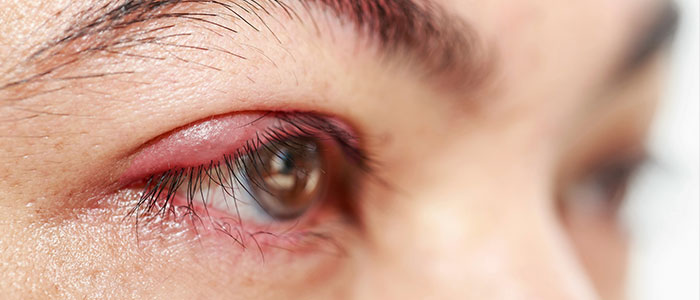
Red, Itchy, swollen eyelids are often due to a condition called blepharitis. Blepharitis tends to be a chronic condition due to thick eyelid mucous gland production that sticks to the bases of the eyelashes. This adherent mucous can allow bacteria to overgrow and also attract and retain allergens. The standard treatment for blepharitis is doing warm compresses and cleaning off the eyelids with a mild baby shampoo and water solution.
This treatment works for some people but there are many more sufferers who have chronic irritation and relapses despite this treatment. If the warm compresses and eyelid scrubs are not quite keeping the condition under control there are several other additional treatments that can be used to control the symptoms.
One such treatment that your doctor may decide to use an antibiotic/steroid combination drop or ointment. We usually use these for short periods of time to try to bring the condition under control. They are not good to use chronically because it can build resistant bacteria and the steroid component can cause other eye issues like cataracts and glaucoma. The treatment is very safe for short term use but chronic use is usually not a good option.
There are also antibiotic eyelid scrubs such as Avenova which can be prescribed and used on a more chronic basis.
Oral Doxycycline can also be used more chronically in very low doses. Doxycycline is an antibiotic that when used to treat infections is generally prescribed in a dose of 100mg twice a day. For chronic Blepharitis suffers we generally use a much lower dose of around 50 mg a day. At that dose we are using the Doxycycline to help thin out the mucous production from the eyelid glands more than for it’s antibiotic properties.
In summary, Blepharitis can be a chronic issue that requires some persistent “maintenance” work be done to keep it under control with further intervention sometimes needed for flare-ups.
Article contributed by Dr. Brian Wnorowski, M.D.
The content of this blog cannot be reproduced or duplicated without the express written consent of Eye IQ

